Twitch’s director of creator development, djWHEAT, broadcasted an educational stream today detailing what the Digital Millennium Copyright Act means for streamers. His expert guest attorney, Noah Downs, suggested that some content creators could start getting DMCA claims during live broadcasts.
Downs, who works for Morrison Rothman LLP, has been in tune with the DMCA and its relationship with streaming platforms for a few years now. But following a recent flurry of DMCA claims over the weekend, he gave some advice for content creators.
“I’ve been screaming to the rooftops about music on Twitch since October 2017 or before,” Downs said. “Don’t use content that you don’t have the rights to use, but if you do get a DMCA, you need to make sure that you are complying, going across getting rid of clips especially and VODs.”
By failing to comply with copyright laws and the DMCA, Downs said streamers are not only putting their channels at risk but they could also end up with a lawsuit.
Stressing repeatedly that content creators shouldn’t use any copyrighted material in any way on their streams, Downs explained that in the future, people could start to get DMCA claims in the middle of livestreams.
Downs said there’s a company with investment interests from Universal Music Group and Warner that’s monitoring Twitch streams and that company has the ability to hand out DMCA claims mid-stream.
“That level of enforcement hasn’t even come through yet, where you’re live, and you’re getting taken down live for playing music,” he said.
While many streamers have been given DMCAs lately and have asked about whether they should submit a counter-notification under the pretense of something like fair use, Downs also said creators should be careful.
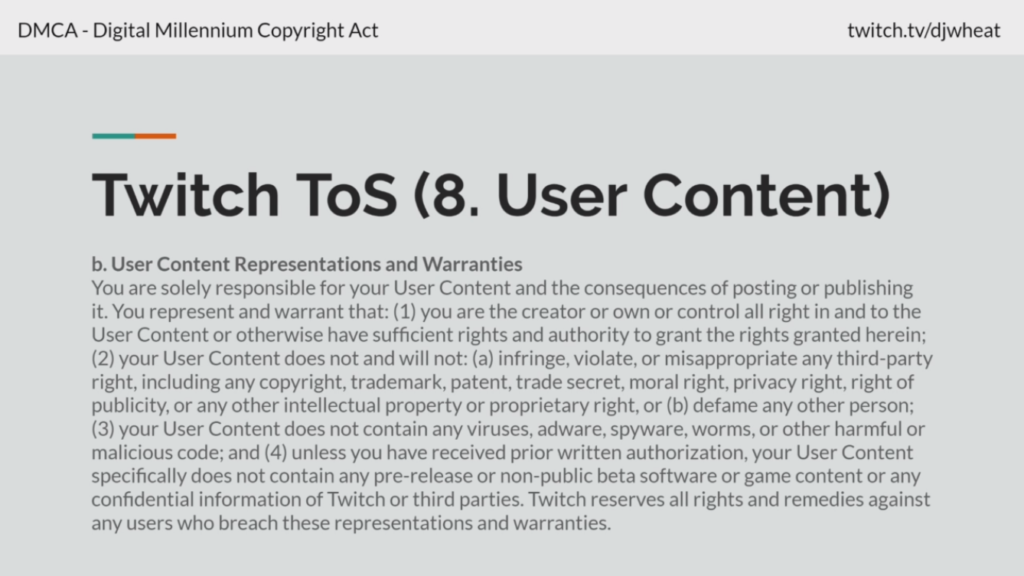
If you choose to respond to a DMCA and it’s found out that you didn’t actually have fair use, you could be in trouble.
“If you counter-notify, and this is important to understand under the DMCA, Twitch has to put that content back up as long as it’s a validly submitted counter-notification,” Downs said. “At that point the rights holder has no other option but to sue you. If that content goes back up, you’re risking a lawsuit.”
Downs came onto djWHEAT’s stream to chat for close to an hour after WHEAT opened up with a quick educational session on DMCA. With a slideshow made to give his audience some basic information regarding DMCA, djWHEAT tried to educate viewers and content creators as well as provide expert insight from a professional lawyer.
While explaining the history of the DMCA, WHEAT detailed the law that was enacted in 1998 to prevent the dissemination of works that were copyrighted. He also pointed out that many online entities, like Twitch, YouTube, Twitter, and Facebook, didn’t exist back then. YouTube, which was launched in 2004, came six years after the DMCA was enacted. Twitch is even younger, having launched in 2011.
While WHEAT came across as particularly frustrated with the nature of the DMCA because of how old it is relative to the platforms that it’s enforced on, he tried to keep his focus on how to help inform streamers rather than explain his disapproval.
“We’re taking the status quo and showing it into a frame that was created 22 years ago,” djWHEAT said. “That is why A. maybe people don’t really know about it and B. maybe why it does need a look and reform.”
WHEAT admitted to his viewers that in the past, he lost the ability to monetize his YouTube channel because of copyright issues while it was a primary source of income for him.
“I’m speaking to you as someone who has had things taken away as a result of not knowing, not understanding, and not following what needs to be done,” djWHEAT said.
This recent overflow of DMCA claims on Twitch has caused a frenzy for streamers, many of which have experienced massive viewership growth amid the COVID-19 pandemic that’s directed people to their computers for entertainment. But while streamers look to find the right way to handle their own particular situation, and perhaps even seek out a lawyer, Downs said it’s important that people don’t look to Twitch as a scapegoat.
“Twitch is not the bad guy here,” Downs said. “Twitch is doing what they have to do to continue to be a viable platform for people to stream games and music. The impetus is on broadcasters to make sure they have the rights to stream this stuff.”


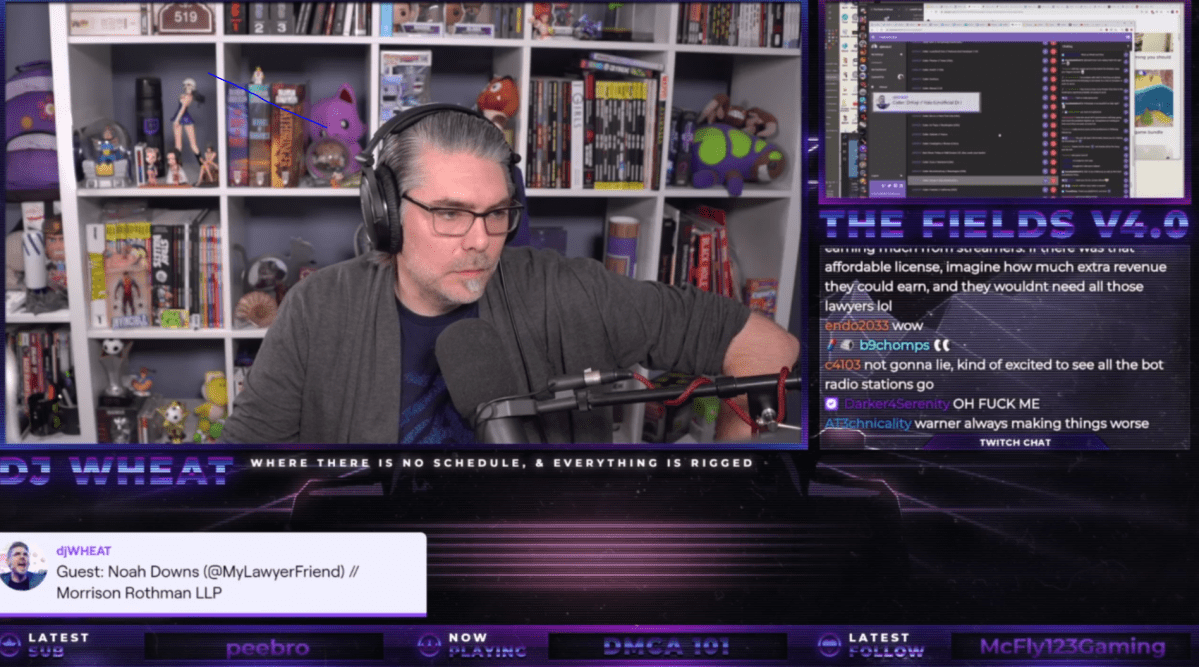
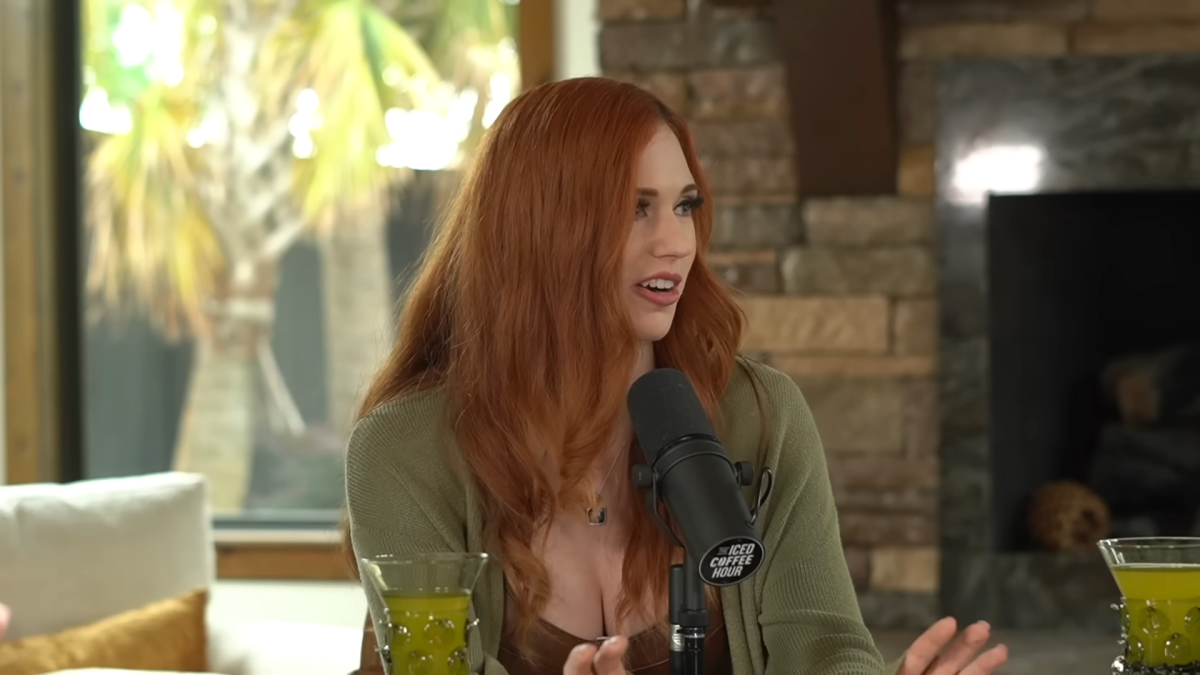

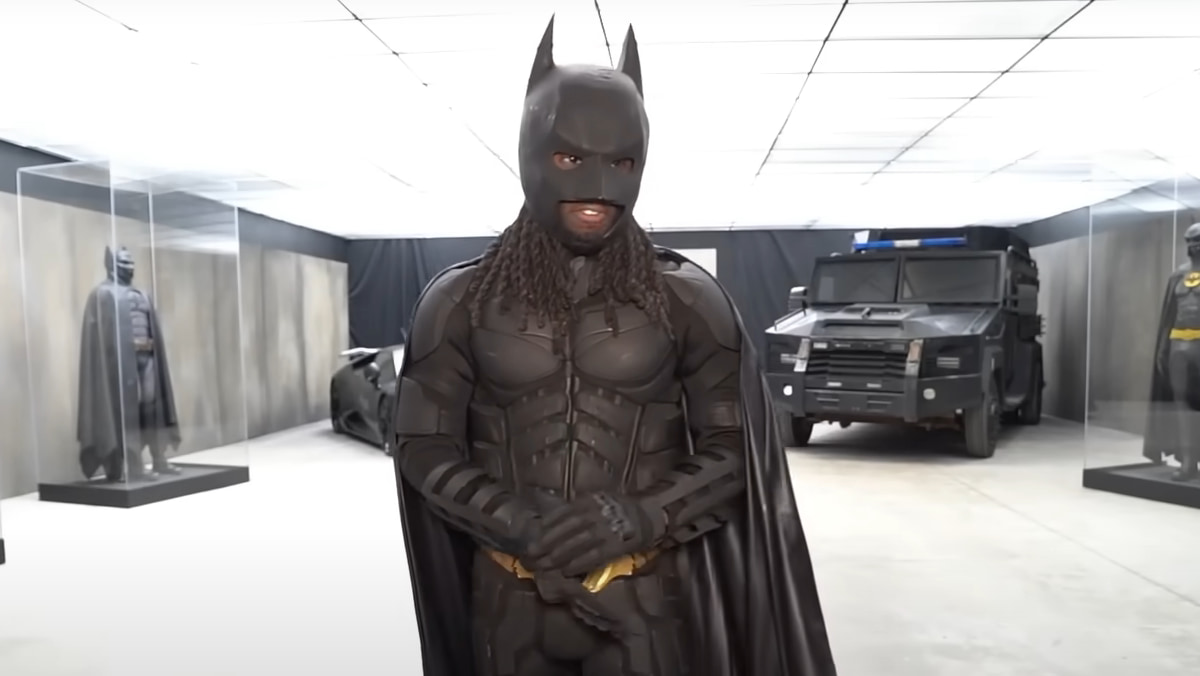
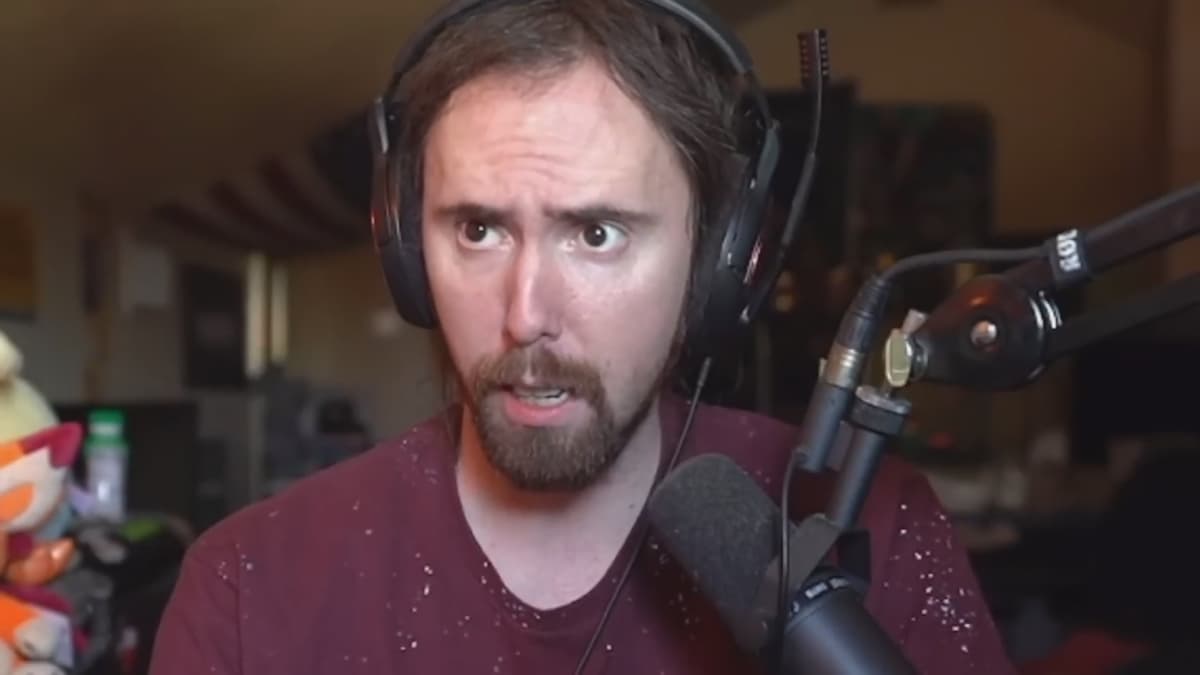
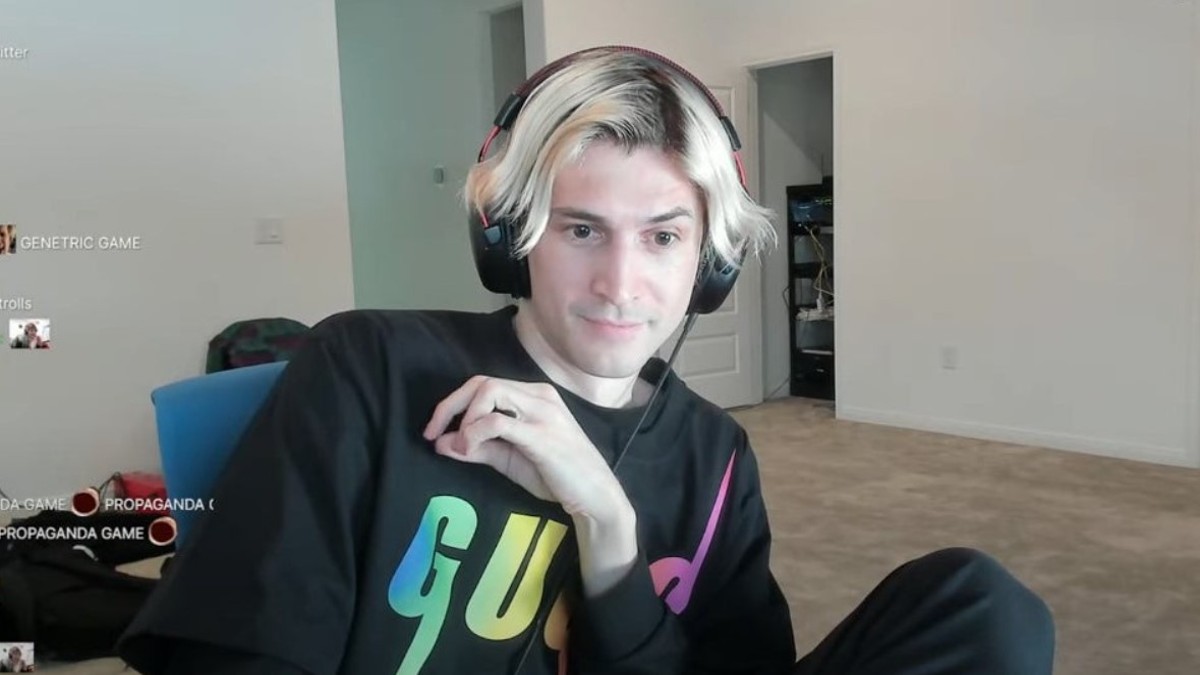
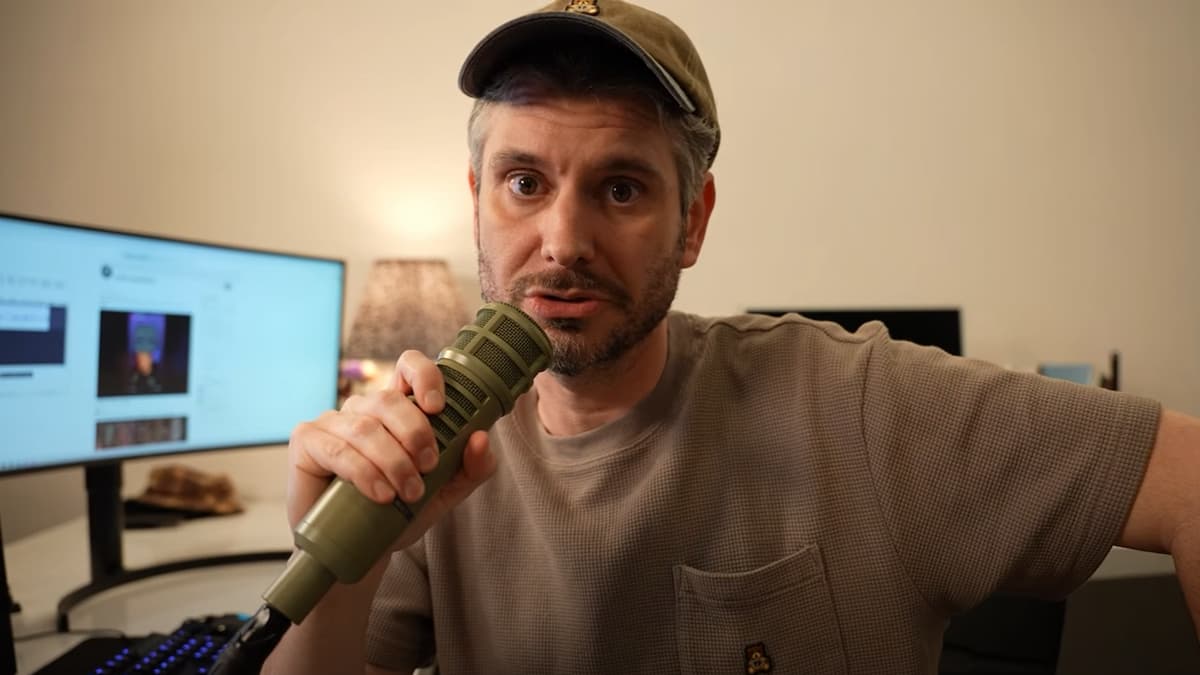

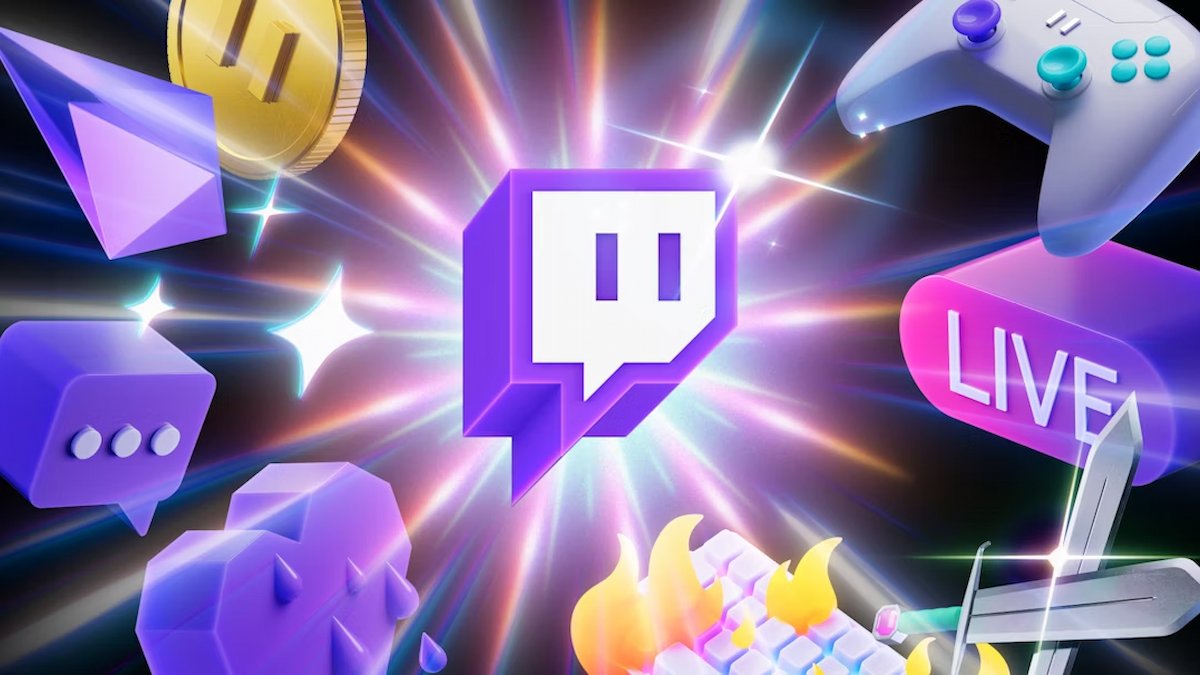

Published: Jun 8, 2020 04:12 pm